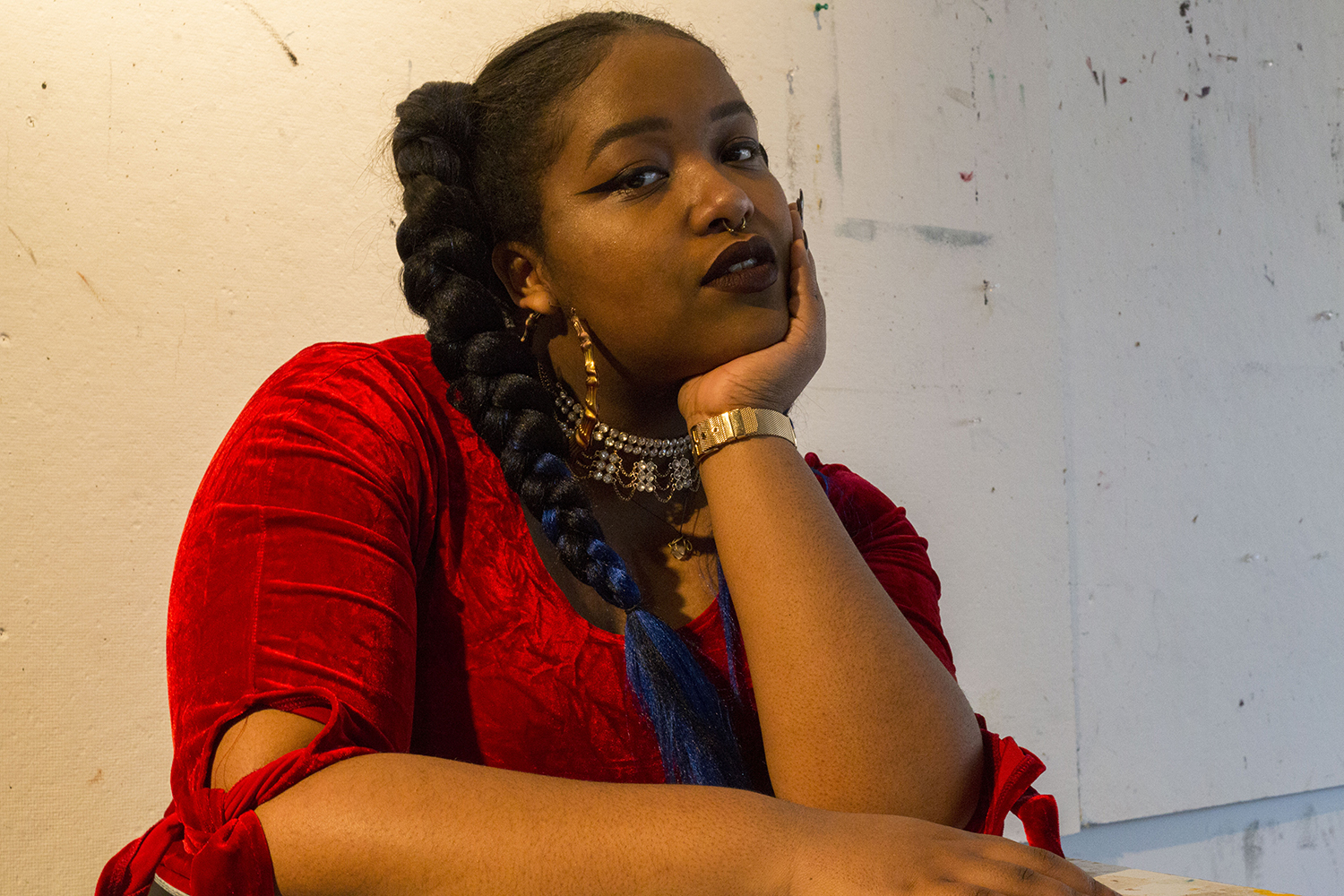
F.U.B.U. – South Shore Edition
“We should not be refugees from our community seeking asylum in spaces intentionally excluding us. And we should not be demonized for what we do with nothing, either.”
– Eva Maria Lewis, “Chicago: A Land of Wilderness and Oasis” TEDxTeen TEDxTalk
Eva Lewis has carefully observed and documented the quest for a grocery store in South Shore, a community that surely eats but can’t seem to draw a viable grocer to feed the community. “I have a lot of pride in South Shore,” Lewis says. “We’re known for having nothing, drug dealing, dilapidated buildings, but still taking something and creating something.”
A large part of Lewis’ 19 years have been informed by what her community lacks: viable grocery stores, easier access to high quality education, and, sometimes, safety. As an artist and activist from South Shore, Lewis, founder of The I Project, has leveraged these factors into an opportunity to showcase the richness and opportunity that exist alongside the challenges.
The writer and poet aims to create equitable communities directing civic resources to invest in viable solutions.
“Our work is in lieu of the government,” says Lewis, whose work and ideas have been widely recognized. “We think advocacy is important, so saying ‘vote, this is going to help us out,’ is fine. But we are not spending our money on lobbying; we’re interested in how we can create communities the government cannot touch.”
Lewis’ perspective is informed by watching her single mother make decisions that would allow her to thrive. Because being a hands-on mom was a greater priority, Lewis’ mom gave up a job in a far-off suburb so her daughter could attend the gifted center she successfully tested into at age 4: Lewis went on to attend Walter Payton College Prep on the North Side, a great opportunity that necessitated a daily hour-long trek across the city.
She was also influenced by her extended family, such as her grandparents, whose roots in Alabama and Mississippi personify Chicago’s Great Migration story. After her grandfather passed away in 2016, the family hit the road to tighten loosened family ties.
“I saw the land my granddad grew up on and the house my great-grandmother had. After slavery, my family founded a church. We went to the segregated cemetery in Meridian (Mississippi) where my great-grandmother is buried.”
Grounded in the knowledge of what her family has been able to overcome and seeing her friends and neighbors persist in the face of structural barriers to progress, Lewis is dedicated to helping community members be their own agents of social change.
She puts it quite simply: “People who have experienced the problem being solved know what is going to solve the problem.”
The I Project hosts online programs and organized an Education Emancipation concert last summer to raise money to provide Google Chromebooks for students at Bouchet Math and Science Academy in South Shore (this was profile on ABC7 Chicago.) Now, the team is promoting education equity elsewhere on the South and West Sides.
Lewis represents a movement among teens and young adults in Chicago (and the nation) to exercise leadership in their communities and tell a different story about what’s going on at the neighborhood level. Here, outlets like The Triibe, which chronicles young black Chicago, stories told by late YouTube star Zack Stoner or the upcoming Comedy Central show “South Side” highlights a need for youth of color to frame themselves and their neighborhoods in their fullness, as assets, not a sum of so many deficits.
“Chicago is often viewed in a negative way these days (and) our show aims to find joy in the fuller picture of the city,” according to a statement from “South Side” creators.
Lewis’ creativity fuels her orchestration of a common song to fuel activism with an intersectional bent. “I combine art and activism in unconventional ways,” the University of Pennsylvania sophomore sociology major says. “Art makes things accessible in ways other things can’t. Everybody may not understand Audre Lorde or James Baldwin, but we can sing the same song.”
She’s also studied ballet and tap, she sings, and is also into video editing and photography.
“All the work [I Project does] goes to benefit the most oppressed subset of society, which is the black woman.” She explained her approach in an article for Teen Vogue:
“Before I am a girl, I am black. Before I face sexism, I face racism. Before anyone takes note of my gender expression, their eyes focus on the color of my skin, a brown appearing golden in the sunlight.”
Thus, Lewis makes a point to spotlight young female artists of color — her national I Project team reflects her stated philosophy, as all seven queer women are African American, Mexican American or Asian American.
This is a story about the Community Safety and Peace strategy of the Partnership for Safe and Peaceful Communities.

